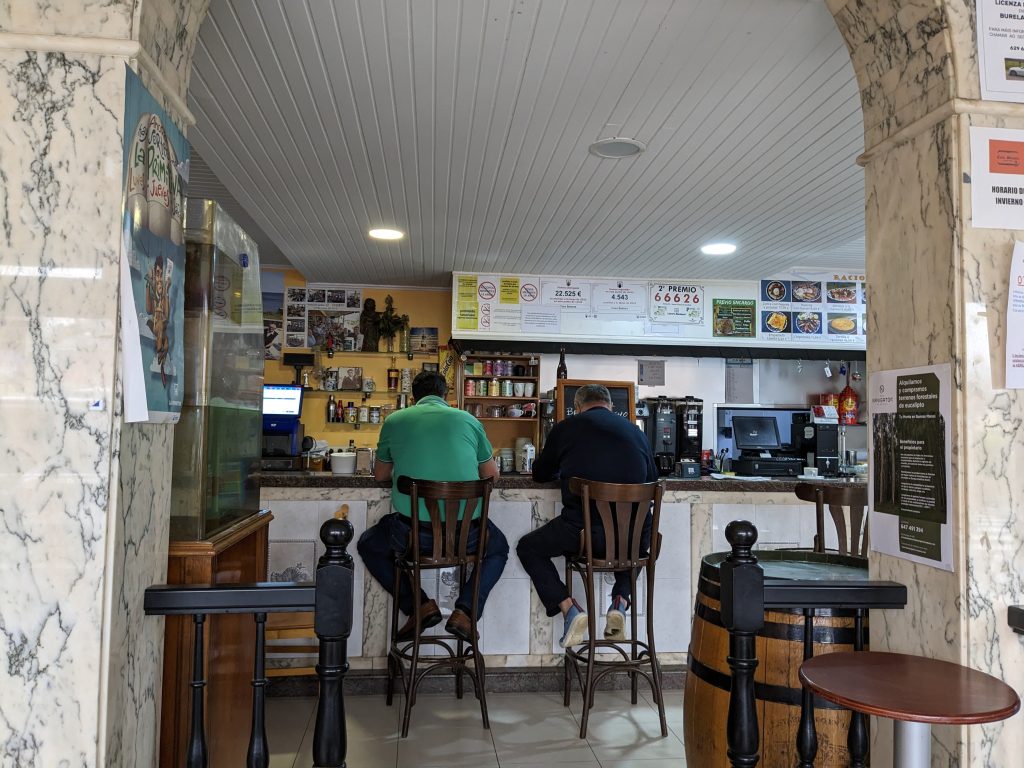I keep posting about the bars in Spain because I like them so much. Each one is unique because there are no chains. My fear is that some private equity firm will start buying them up and cutting costs to increase profits.
But how does a small business like a bar buy all the things they need to operate? The traditional way to do this is middlemen, salesmen who sell, say, soft drinks. They go around to a lot of bars and take soft drink orders. And another one for coffee, and another one beer, etc. They know the people at each bar, and ask about their kids and carry new jokes from place to place.
The guy on the right in this photo is, we think, a middleman.

Here he is having a coffee and chatting. Later we saw him and the bar owner looking over some papers that looked like an order.
Such people used to be common in the US but I think they are disappearing, replaced by more efficient methods of keeping stock.
One of the things we like about Spain is that in some ways it is like the US was 50 years ago. Not in all ways for sure, in most ways Spain is a very modern country.
It is a matter of opinion whether the changes are good or bad and we can’t change them back in any case but we like to experience the old ways for a few weeks every year.
My dad (as you know) created and owned an arts/crafts/hobby store for decades. It was common practice back then for various salesmen (one for models, one for beads, one for glitter, one for paints, etc) to come in regularly, take stock and put together the order. My dad knew them all well and they knew him and the family. Heck, I knew them! But you are right, that has mostly died out in favor of a more high-tech approach.
Christy’s father was a middleman. He would drive all over the LA area visiting SavOns and talking to their buyers. Like you said he knew about their families, and he would share jokes and generally brighten up their day. But brightening up someone’s day does not show up on the bottom line and I doubt his job exists any more.